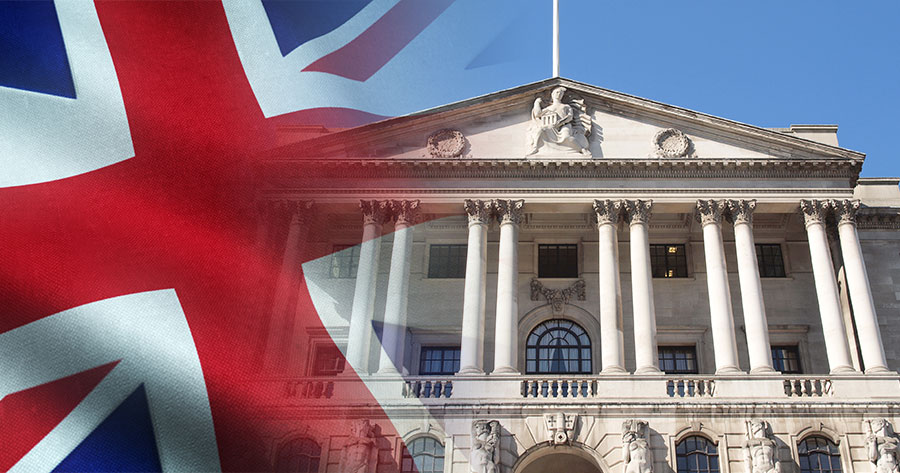Reeves shared projections from the OBR, which said CPI inflation will average 2.5% this year, 2.6% in 2025, then 2.3% in 2026, 2.1% in 2027, 2.1% in 2028 and 2.0% in 2029.
Latest News
- Details
- Hits: 281
The decisive nature of the result calmed concerns about civil unrest and the possibility of a volatile reaction on financial markets, where the response was largely predictable.
In the longer-term, it doesn’t change the fact the US has a ballooning deficit or that some of Trump’s plans are inflationary, including the imposition of tariffs, reduced reliance on cheaper imported labour and lower taxes.
As a result, his victory put upwards pressure on US Treasury yields last Wednesday in the belief the Federal Reserve will need to respond with rates that stay higher for longer. Irrespective of the election result, the Fed made a long-expected cut to a range of between 4.5% and 4.75% last week. The Bank of England cut to 4.75% on the same day, although the pace of reductions is expected to slow following the Budget.
Trump’s victory will do nothing to calm nerves about the prospect of higher mortgage rates in the UK, although markets this side of the Atlantic are still focussed on digesting the Budget.
Bond markets have not given it a wholehearted thumbs-up and last week saw the weakest take-up for the sale of UK debt since December 2023.
In the longer term, more money could be invested in UK debt markets if the country starts to look attractive by comparison to the US, which would put downwards pressure on bond yields and mortgage rates, said Savvas Savouri, chief economist at Quantmetriks.
The UK “cannot fail to see a greater share coming into its financial (gilts, equities) and physical (read real estate) assets,” he said.
However, there are various forces pulling in different directions. There is uncertainty over whether the Labour plan to raise taxes in the private sector more aggressively will work, creating nervousness around how much more it may need to borrow.
The five-year interest swap rate was trading above 4.3% last Thursday compared to under 3.9% at the start of October and there are concerns it could go higher if the government’s borrowing headroom narrows.
The interest rate landscape is certainly more adverse than a fortnight ago, which will increase downwards pressure on house prices in the short-term.
For anyone deciding whether to fix their mortgage rate for two or five years, they will be weighing up whether they think the Budget will work or more rate turbulence lies ahead during this Parliament.
That said, when judging what will happen to prices and demand, it should also be remembered that the majority of UK homeowners own their home outright rather than with a mortgage, meaning there is no shortage of cash in the system, particularly in prime London postcodes.
The US election may also provide opportunities, particularly in prime UK residential markets.
In addition to having a high deficit, Trump said he wants a weaker dollar to make the US more competitive. That would mean plans may accelerate as the window of opportunity for overseas buyers looking to take advantage of the weak pound since the Brexit referendum in 2016 may start closing.
Beyond that, a number of Democrats and high-profile individuals may decide to move to the UK and live under a government more aligned with their political views. After all, the party raised more than a billion dollars during the election campaign, which was three times higher than the Republicans.
Meanwhile, tensions in the Middle East may heighten following Trump’s victory, meaning a number of buyers from the Gulf may start looking more actively at London and the surrounding areas.
- Details
- Hits: 303
The nine-member Monetary Policy Committee (MPC) voted in favour of the reduction, following a steady trend in economic forecasts that suggest a potential downturn in inflationary pressures.
The rate cut comes despite new fiscal policies introduced in Chancellor Rachel Reeves’s recent budget, which are expected to increase costs for UK businesses, including a 1.2% rise in employers’ National Insurance contributions from April. Stuart Douglas, Director of Capital Markets at Centrus, noted, “Though the interest rate cut was expected, concerns linger about inflationary pressures stemming from both fiscal policy changes and the impact of Donald Trump’s US election victory on global trade.”
Trump’s proposed tariffs on imports have sparked fears of a trade war that could lead to higher costs for UK businesses and consumers, impacting both inflation and growth. Economists at the National Institute of Economic and Social Research warned that these factors might prompt the Bank of England to ease policy more cautiously.
At the Bank’s last meeting in September, MPC members took a cautious stance, keeping rates unchanged as some members, including Chief Economist Huw Pill, voiced concerns over high services inflation and wage growth. With regular wage growth at its weakest in two years, now down to 4.9%, and headline inflation dropping from 2.2% in August to 1.7% in September, the Bank’s decision to lower rates reflects shifting economic conditions.
Catherine Mann, an external MPC member known for favouring restrictive monetary policy, maintained her caution, arguing that tight policy remains necessary to curb inflationary behaviours. However, Bank of England Governor Andrew Bailey suggested the possibility of a “more aggressive” loosening cycle, balancing the need for caution with the benefits of rate cuts in a slowing economy.
Market data has reflected some of the budget’s pressures, as yields on UK government bonds rose by 25 basis points after the budget announcement—a significant increase excluding the aftermath of the 2022 mini-budget. Meanwhile, analysts at Nomura observed that easing inflation and slower wage growth allow the Bank more scope for rate cuts, projecting further reductions in the coming year.
Goldman Sachs forecasts that UK interest rates could fall to 3% by September 2025, though uncertainties remain. The rate cut has been met with cautious optimism among UK businesses. Mike Randall, CEO of Simply Asset Finance, commented that while the cut offers some relief, further support is essential to meet growth targets outlined in the Chancellor’s Autumn Statement.
“SMEs need greater certainty and more incentives to invest in long-term growth,” Randall said. “With this, the Government’s goal of rebuilding Britain can be realised.”
The latest cut aims to support a UK economy facing complex pressures from both domestic fiscal policies and international trade uncertainties, setting the stage for further potential adjustments as the Bank monitors the evolving economic landscape.
- Details
- Hits: 297
The Bank of England will almost certainly cut interest rates tomorrow in what would be a welcome move for property buyers and sellers, as well as estate agents.
A slowdown in business activity in October revealed in yesterday’s final S&P Global UK Composite PMI survey suggested a degree of uncertainty ahead of the budget. The index fell from 52.5 to 51.8, its lowest reading since November last year. But economists still expect interest rates to be cut by 0.25%, from 5% to 4.75%, when the Bank’s Monetary Policy Committee (MPC) meet tomorrow.
UK estate agents have reported more buyer interest since summer following the BoE rate cut in August, with buyer enquiries increasing significantly in recent weeks.
The Bank cut interest rates from 5.25% to 5% in August, which was the first drop in more than four years.
UK inflation fell to 1.7% in the year to September, the lowest rate since April 2021.
The drop in the rate was larger than expected thanks in part to lower airfares and petrol prices – economists had predicted a 1.9% fall.
It also means inflation is now below the Bank of England’s 2% target, paving the way for interest rates to be cut further next week.
Financial markets have been pricing in a interest rate cut for the UK at the next Bank of England tomorrow, with all 72 economist in a Reuters poll taken 22-28 October forecasting that BoE will cut its Bank Rate by a quarter-point next week to 4.75%.
But while the Bank is facing growing pressure to also cut interest rates in December as wage growth slows, almost near-two-thirds of respondents expect no interest rate move in December, suggesting the BoE will stick to a cautious approach.
Among 16 gilt-edged market makers, a majority of 11 expected the MPC to hold rates in December, while five expected a cut. Interest rate futures are pricing in reductions in both November and December.
- Details
- Hits: 336
Chancellor Rachel Reeves’ Budget statement this afternoon highlighted tax hikes for both working individuals and British businesses.
She told the Commons that the Budget will raise taxes by £40bn with an approach that she believes will achieve growth in the near future.
Reeved also said the OBR has published a detailed assessment of Labour’s policies for the next decade.
Listing its forecasts, she announced that real GDP growth will be 1.1% in 2024, 2% in 2025, 1.8% in 2026, 1.5% in 2027, 1.5% in 2028, and 1.6% in 2029.
“This Budget will permanently increase the supply capacity of the economy, boosting long-term growth,” she said.
There were several tax announcements that directly and indirectly affect those working and investing in the property industry.
National Insurance
There was bad news for employers, as Reeves announced that National Insurance contributions by employers will rise from 13.8% to 15%.
In addition, the threshold at which businesses start paying National Insurance on a workers’ earnings will be lowered from £9,100 to £5,000.
Capital gains
The rates on residential property will remain at 18% and 24%.
Inheritance Tax
Reeves said she will extend the inheritance tax threshold freeze for a further two years to 2030.
That means the first £325,000 of any estate can be inherited tax-free, rising to £500,000 if the estate includes a residence passed to direct descendants, and £1m when a tax free allowance is passed to a surviving spouse or civil partner, she said.
She added that she will bring inherited pensions into inheritance tax from April 2027.
Stamp duty
Reeves announced that the government will increase the stamp duty land surcharge for second-homes by 2% to 5% from tomorrow.
Right to Buy discounts
The chancellor says the government will invest more than £5bn to deliver their housing plan.
She added this Budget will increase the Affordable Homes Programme to £3.1bn, provide £3bn worth of support and guarantees to increase the supply of homes and support small housebuilders.
Property professionals react to the statement:
Richard Donnell, head of research and insight at Zoopla commented: “Changes to stamp duty land tax, together with higher property prices, has seen stamp duty raise over £11.5bn in 2023/23. It’s a tax that falls most heavily on buyers in southern England with London and the South East accounting for over 50 per cent of annual tax receipts from stamp duty.
“The extra 2% cost on buying second homes and investment property will reduce demand from second home buyers and investors. Second home buyers are already responding to last year’s Budget which allowed councils to charge double council tax for second homes. This is resulting in a higher level of selling by second home owners. In areas with above average second homes we have seen four times more homes come to the market.
“This announcement also comes with changes announced previously which will see first time buyers pay more from next year. A return to previous stamp duty thresholds from April 2025 will result in an additional 20 per cent of first-time buyers being liable to pay stamp duty and a further 14% will be required to pay a partial amount. The impact is felt across London and the South East in markets with average house prices over £425,000. This will increase costs for buyers by an average of £5,600 in London and £1,390 in the South East. In parts of London with home values over £600,000, FTB could pay an additional £15,000 in stamp duty. Buyers will want to take this off the price they pay for homes, keeping price rises in check.”
“It’s positive to see that capital gains tax has not increased for landlords (already 24% for higher rate taxpayers). The private rented sector has seen static supply since tax changes introduced in 2016 and there is a steady net selling by landlords in response to tax policy but also greater regulation of housing and higher mortgage rates. We need to keep as many landlords as possible in the market to provide choice for renters facing limited choice and to prevent rents rising faster than earnings, which hits those on low incomes the hardest.”
Nick Sanderson, Audley Group CEO commented: “Planning policy will continue to haunt the government if it ignores the need for reform. Labour’s ‘golden rules’ and commitments to planning reform were a step in the right direction at the beginning of its tenure but now we need more detail. There must be a clear commitment to the types of home that will be built, and how the planning system will help meet those targets, rather than hinder. More planning officers is a start, but a progressive and forward-thinking government would prioritise the delivery of age-specific properties across the UK. The benefits would be vast; creating space in the housing market, enabling people to live healthy lives for longer, alleviating pressure on the NHS and ultimately improving the quality of life for our ageing population.”
Angharad Truman, ARLA Propertymark president, said: “We continue to see a growing disparity in the number of private rented homes available against a backdrop of increasing demand from tenants. Therefore, it is disappointing to see that the UK Government did not address this fundamental issue in its Autumn Budget and instead has announced yet another blow for landlords by increasing capital gains tax.
“The private rented sector plays a crucial role in housing the nation with over 4.6 million homes in England alone, therefore it is imperative that the UK Government does not continue to push landlords out of the market.
“In order to ultimately keep people in much needed and affordable private rented homes, we continue to stress the importance of support for the private rented sector including incentives for landlords to invest rather than continuing to penalise them through regulatory bombardment and increasing costs.”
Jon Byers, founder of Anderson Rose, remarked: “Speculation around the Autumn Statement has been swirling since the first day Labour took control of Parliament, with rumours and leaks around various wealth taxes spooking the market and taking out any short-lived momentum achieved since the General Election result was announced. We understand measures need to be taken to fund the Government’s public spending plans, however, there needs to be a greater focus on the property industry, as a busy and prosperous market will reap rewards for the Treasury in the long-term.
“We feel one of the hardest blows to take for the prime property market from this Budget is the further SDLT increase of 1% to international purchasers, which means depending on the value and circumstances of the transaction, could result in a maximum rate of 17%. We have already witnessed a sharp drop off in activity from overseas buyers in recent years and despite talk of making Britain an attractive place to invest this will only deter them further.
“Added to this, the capital gains tax increase means less sellers are likely to sell, which could force the price of property (and stamp duty) higher and out of the reach of even more people. If Labour are serious about promoting investment in the UK then they need to encourage a free market and make the property market more accessible not discourage individuals with higher taxes and punitive red tape.”
Ryan Etchells, chief commercial officer at Together, said: “The chancellor’s reduction in the discount allowing tenants to buy their council homes under the Right-to-Buy (RTB) scheme will mean they will have to pay, in most cases, tens of thousands of pounds more to be able to get on the housing ladder.
“The government says this will make the RTB scheme ‘fairer and more sustainable’ but the move seems incredibly unfair, when some people who may have lived in their council homes for years and had planned to make it their own will now be simply locked out of home-ownership for good.
“Together’s own research shows nearly a third want to see housing and planning reforms addressed in the first 12 months of Labour’s government, with 12% wanting more help for first-time buyers and 7% keen to see the creation of new property schemes to help assist people’s property ambitions by January 2025. Disappointingly, the ruling on RTB works directly against the public’s wishes.”
Joshua Elash, chief executive officer of lender MT Finance Group, said: “In the short term, the increases to NI employers’ contributions may have a negative impact on wage growth and may lead to a slower labour market but we expect this higher rate to be quickly normalised.
“Equally, the increases to capital gains taxes aren’t as aggressive as mooted and at the new levels will not dampen any serious private equity activity. We don’t see asset holders across any sector sitting tight for an extended period, or relocating, at the new tax levels.


















